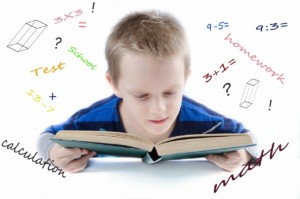The treatment of speech disorders and communication issues are performed by a speech-language pathologist, also known as a speech therapist. Language intervention activities, articulation therapy and other techniques are used to improve language and communication.
Articulation Disorders
 The inability to correctly form certain sounds. A child may add, distort, swap, or drop sounds. For instance, distorting the word “this” by saying “thith”.
The inability to correctly form certain sounds. A child may add, distort, swap, or drop sounds. For instance, distorting the word “this” by saying “thith”.
Fluency Disorders
A disorder that affects the rhythm, speed, and flow of speech. For example, a child that speaks fast and merges words together, is called cluttering. While stuttering, is when speech is interrupted or blocked, making it difficult getting out a particular sound.
Receptive Disorders
Having trouble processing and understanding what others say is receptive language disorder. This can appear as a child having trouble following directions, uninterested in what someone is saying, or limited vocabulary. Often associated with hearing loss and autism.
Expressive Disorders
When a child has difficulty expressing or conveying information, they may have an expressive language disorder. This can include having trouble using the correct verb tense or forming accurate sentences.
 Aphasia
Aphasia
According to the American Speech Language Hearing Association (ASHA), “Aphasia is an acquired neurogenic language disorder resulting from an injury to the brain—most typically, the left hemisphere. Aphasia involves varying degrees of impairment in four primary areas: Spoken language expression, Spoken language comprehension, Written expression, Reading comprehension. A person with aphasia often has relatively intact nonlinguistic cognitive skills, such as memory and executive function, although these and other cognitive deficits may co-occur with aphasia.”
Dysarthria
Due to the inability or weakness to control the muscles used to speak, resulting in slurred or slow speech. “These include muscles in our face, lips, tongue, and throat, as well as muscles for breathing. It is harder to talk when these muscles are weak. Dysarthria happens when you have weak muscles due to brain damage. It is a motor speech disorder and can be mild or severe.”
Speech Therapy
An SPL equips parents and caregivers with the knowledge and tools to help your child. Creating a team that can change your child’s life, by giving them the ability to learn, communicate, and socialize.
Setting up your child for success, is the most powerful thing a parent can do. ASHA offers parents essential information on children’s communication and development from birth to and 5.


